Attracting wildlife to your garden
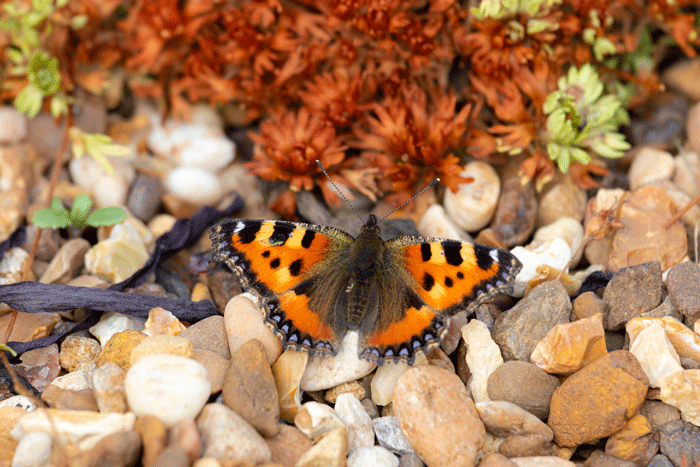 Organic September is certainly an appropriate time to share tips on why and how we should be attracting wildlife into our gardens. Gardeners at national horticultural charity Garden Organic are encouraging us to attract wildlife into our gardens to help prevent irreversible extinctions and save the planet.
Organic September is certainly an appropriate time to share tips on why and how we should be attracting wildlife into our gardens. Gardeners at national horticultural charity Garden Organic are encouraging us to attract wildlife into our gardens to help prevent irreversible extinctions and save the planet.
The charity is backing the Organic Trade Board’s September campaign, highlighting why bringing more insects, birds and frogs back into our gardens should be the next big focus for climate conscious Britons who want to do their bit to protect the planet and halt the worrying decline in wildlife and vital natural ecosystems.
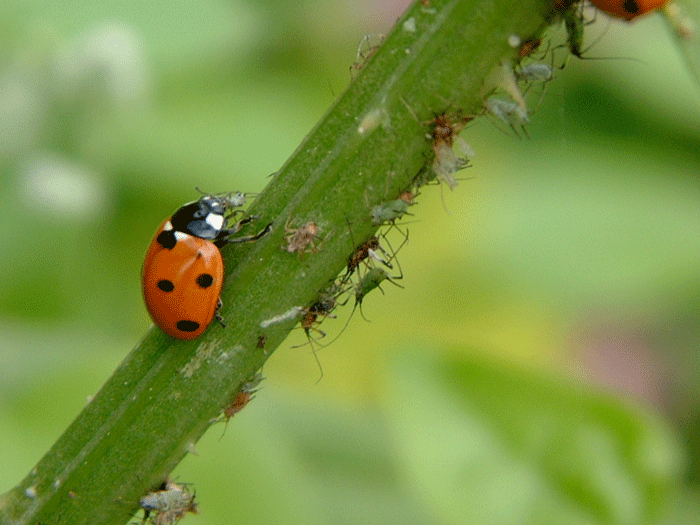 Garden Organic’s head gardener, Emma O’Neill points out that they are on a mission to shine the spotlight on the benefits of re-wilding our gardens and outdoor spaces, because thriving wildlife is key to a healthy, functioning planet: “By choosing organic and sustainable growing methods, we can create havens for wildlife which play vital roles in the ecosystems we rely on in so many aspects of society and humankind.
Garden Organic’s head gardener, Emma O’Neill points out that they are on a mission to shine the spotlight on the benefits of re-wilding our gardens and outdoor spaces, because thriving wildlife is key to a healthy, functioning planet: “By choosing organic and sustainable growing methods, we can create havens for wildlife which play vital roles in the ecosystems we rely on in so many aspects of society and humankind.
“We should be encouraging earthworms, birds, frogs, ladybirds and other insects to our gardens to maintain healthy soil, naturally control pest levels and ensure other animals don’t starve. That’s why our team here is getting behind the Organic Trade Board’s Organic September campaign, which encourages us all to make planet-positive decisions. The theme is ‘Nature has the answer’ and ‘the answer is organic’, which underpins our ethos at Garden Organic,” says Emma.
As part of Organic September, Emma shares some tips with us on which wildlife we should be inviting into our gardens and why.
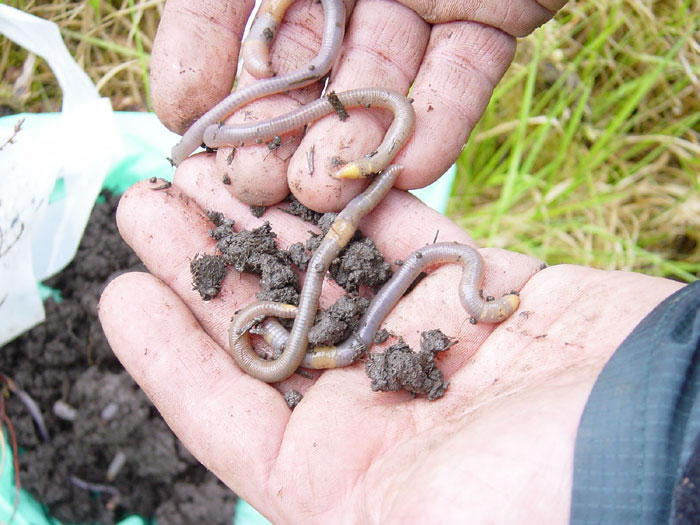 Look after earthworms
Look after earthworms
Look after your soil – earthworms are a great ally in this task and they will not only improve your soil structure they will munch through any organic matter, breaking it down, so its gets mixed into the soil providing vital nutrients for plant roots to take up.
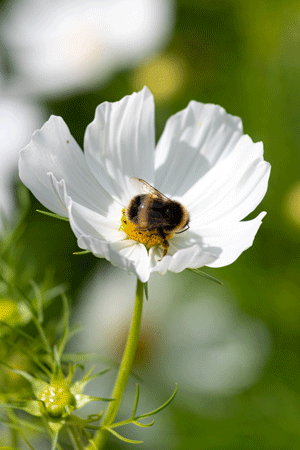 Choose plants that attract beneficial insects
Choose plants that attract beneficial insects
Plants need to pollinate to set fruit and seed. This is why we need our insect friends. Bees, butterflies, hoverflies – even wasps, will all help transfer pollen from one flower to another, thus helping the reproduction proves. Grow a mix of flowers – hoverflies, for instance love fennel, butterflies love nettles and buddleia, bees make a beeline for lavender. Try mixing veg such as tomatoes and strawberries in with the flowers in your hanging baskets.
Create shelter for birds
Birds are not only a joy to watch and listen to they are essential to the natural world. They can pollinate plants spread seeds and control pests. Attract them by giving them shelter. If you have room, plant shrubs, a hedge or small tree to provide blossom and bring insects and berries for the birds to eat as well as providing cover for nests.
Ladybird friendly planting
Love ladybirds – these endearing little beetles are carnivores, feeding on aphids and red spider mites. They lay hundreds of eggs and when they hatch, the larvae will eat up to 5,000 aphids before metamorphosing into the distinctive red or orange spotted adults. Ladybird heaven are plants like yarrow, penstemon, fennel and tansy.
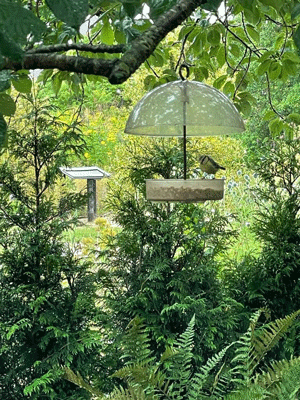 Emma concludes that the choices we make in our gardening can make or break ecosystems and we must look to nature for the answer: “If enough of us make the shift towards organic gardening methods and attracting beneficial wildlife, the collective environmental impact will be huge. Organic September is a great time to make some wildlife-friendly changes, as these fantastic creatures need more help with food and shelter during the autumn and winter months. So, re-wild and watch as nature thrives in your back yard.”
Emma concludes that the choices we make in our gardening can make or break ecosystems and we must look to nature for the answer: “If enough of us make the shift towards organic gardening methods and attracting beneficial wildlife, the collective environmental impact will be huge. Organic September is a great time to make some wildlife-friendly changes, as these fantastic creatures need more help with food and shelter during the autumn and winter months. So, re-wild and watch as nature thrives in your back yard.”
The Organic September campaign is highlighting the benefits of choosing organic which include supporting wildlife, helping to combat climate change and encourage less exposure to pesticides as well as high standards of animal welfare and enjoying food as it should be.
For more information and tips on the benefits of organic gardening please visit: https://www.gardenorganic.org.uk/
All photographs are ©Garden Organic, credit Shaun Fellows at Shine Pix Ltd.

